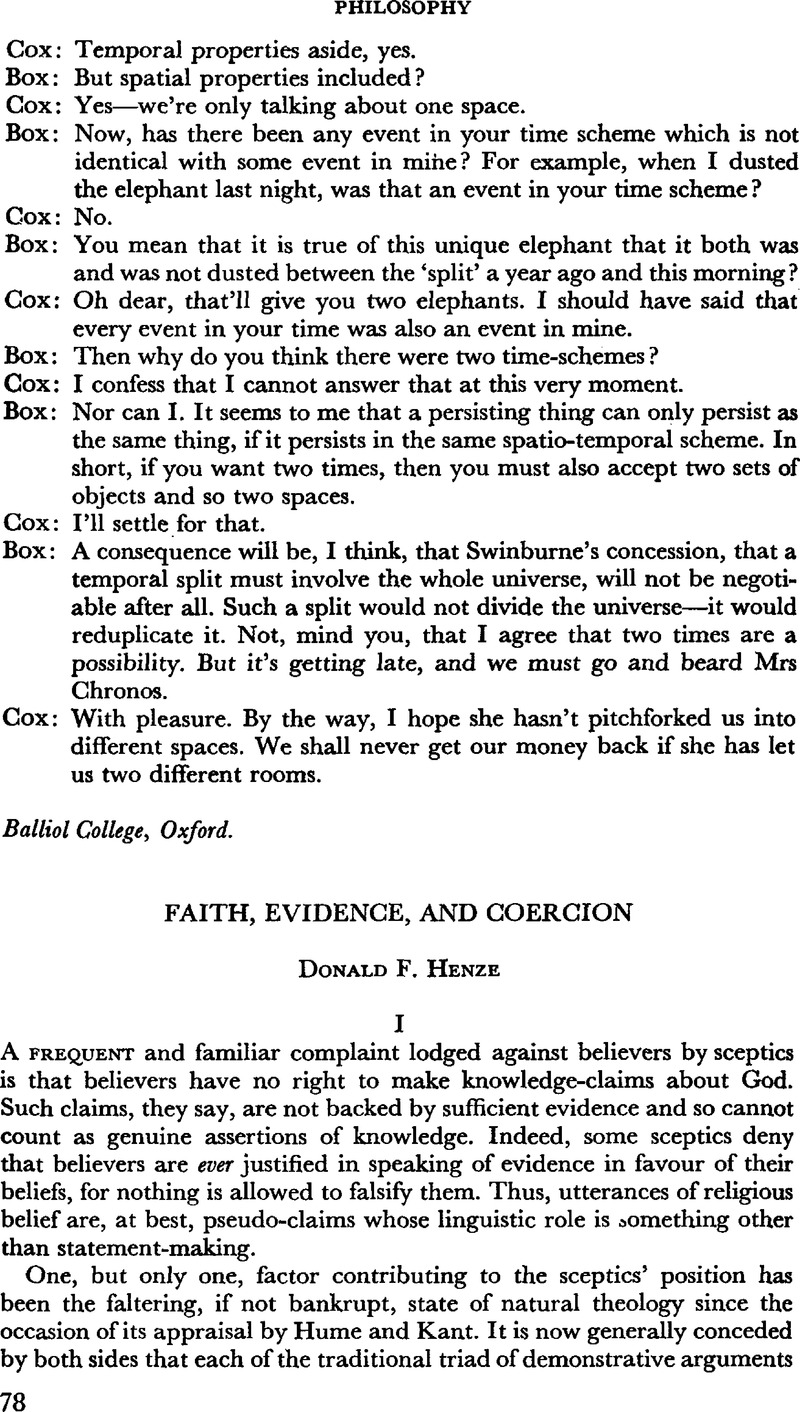No CrossRef data available.
Article contents
Faith, Evidence, and Coercion
Published online by Cambridge University Press: 25 February 2009
Abstract

- Type
- Discussion
- Information
- Copyright
- Copyright © The Royal Institute of Philosophy 1967
References
1 Professor H. H. Price evidently thinks it may. Addressing himself to the question ‘Why is the evidence for God's existence so inadequate?’ Price says that it may have something to do with the ‘uncompellable’ character of love: ‘If evidence had been conclusive and obvious to all, we should have been compelled to believe that God exists and perhaps also that he loves every one of us. But this would only be the settling of a theoretical question....Perhaps God's will or plan was that we should love him; and love cannot be compelled, even if assent can. Love has to be given freely, if given at all.’ (‘Faith and Belief’, Faith and the Philosophers, ed. J. Hick, p. 20.) I am prepared to accept that it is odd, perhaps logically odd, to talk about love being compelled: a young woman's parents may compel her to marry the man of their choice, although one hesitates to say that they, or anyone else, can compel her to love him. The issues are complex, but I think there are good reasons for suspecting the notion of compelled belief as well (see below).




